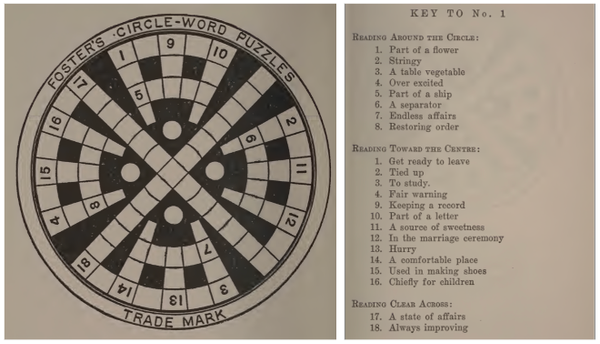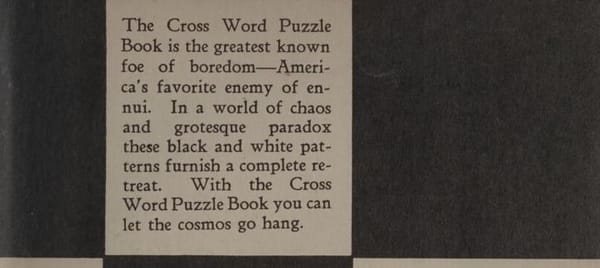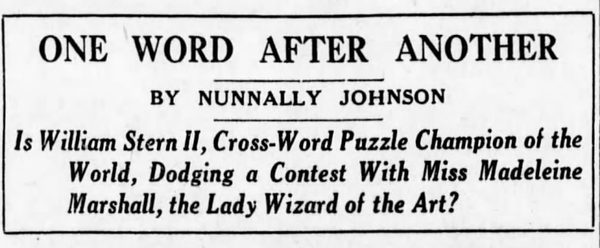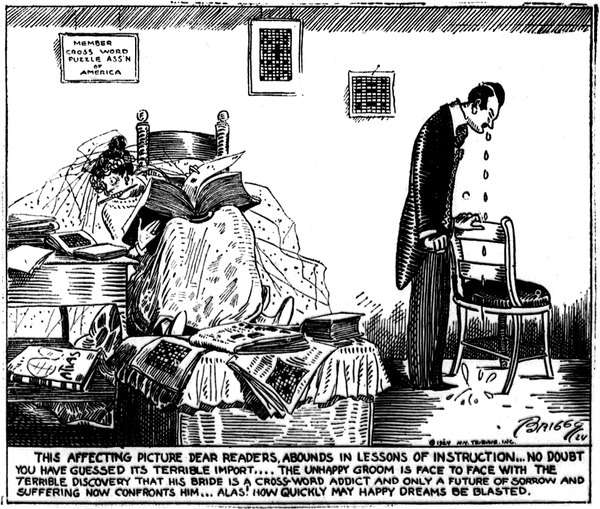"In love, and war, and puzzledom, all is fair."
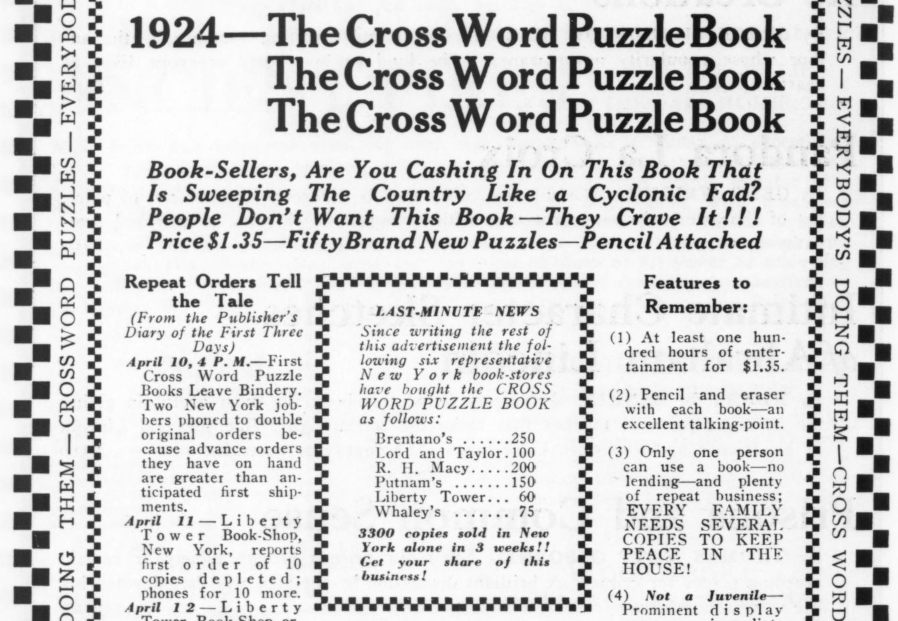
In the month since The Cross Word Puzzle Book was published, it had become a phenomenon. A larger version of the fad-focused ad that had run in newspapers appeared in Publisher's Weekly on May 10, 1924, now with a timeline of the first three days of orders and re-orders, last-minute news about its availability, and a list of "Features to Remember" that read like talking points for booksellers.
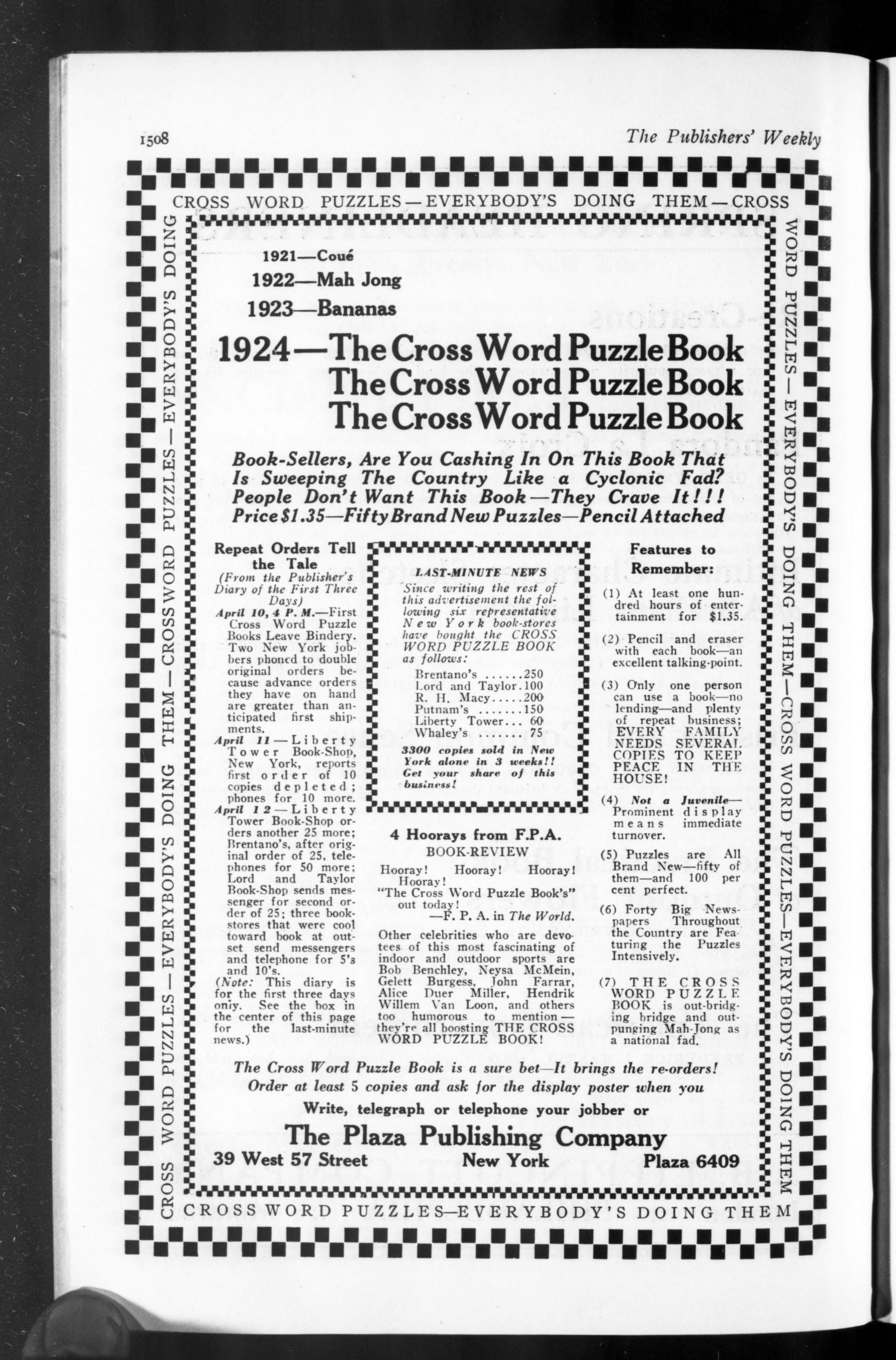
Those talking points certainly made the hard sell! Here they are, transcribed:
Features to Remember:
(1) At least one hundred hours of entertainment for $1.35.
(2) Pencil and eraser with each book—an excellent talking point.
(3) Only one person can use a book—no lending—and plenty of repeat business: EVERY FAMILY NEEDS SEVERAL COPIES TO KEEP PEACE IN THE HOUSE!
(4) Not a Juvenile—Prominent display means immediate turnover.
(5) Puzzles are All Brand New—fifty of them—and 100 per cent perfect.
(6) Forty Big Newspapers Throughout the Country are Featuring the Puzzles Intensively.
(7) THE CROSS WORD PUZZLE BOOK is out-bridging bridge and out-punging Mah-Jong as a national fad.
Elsewhere, the Boston Globe ran a crossword criticism column alongside its actual puzzle.
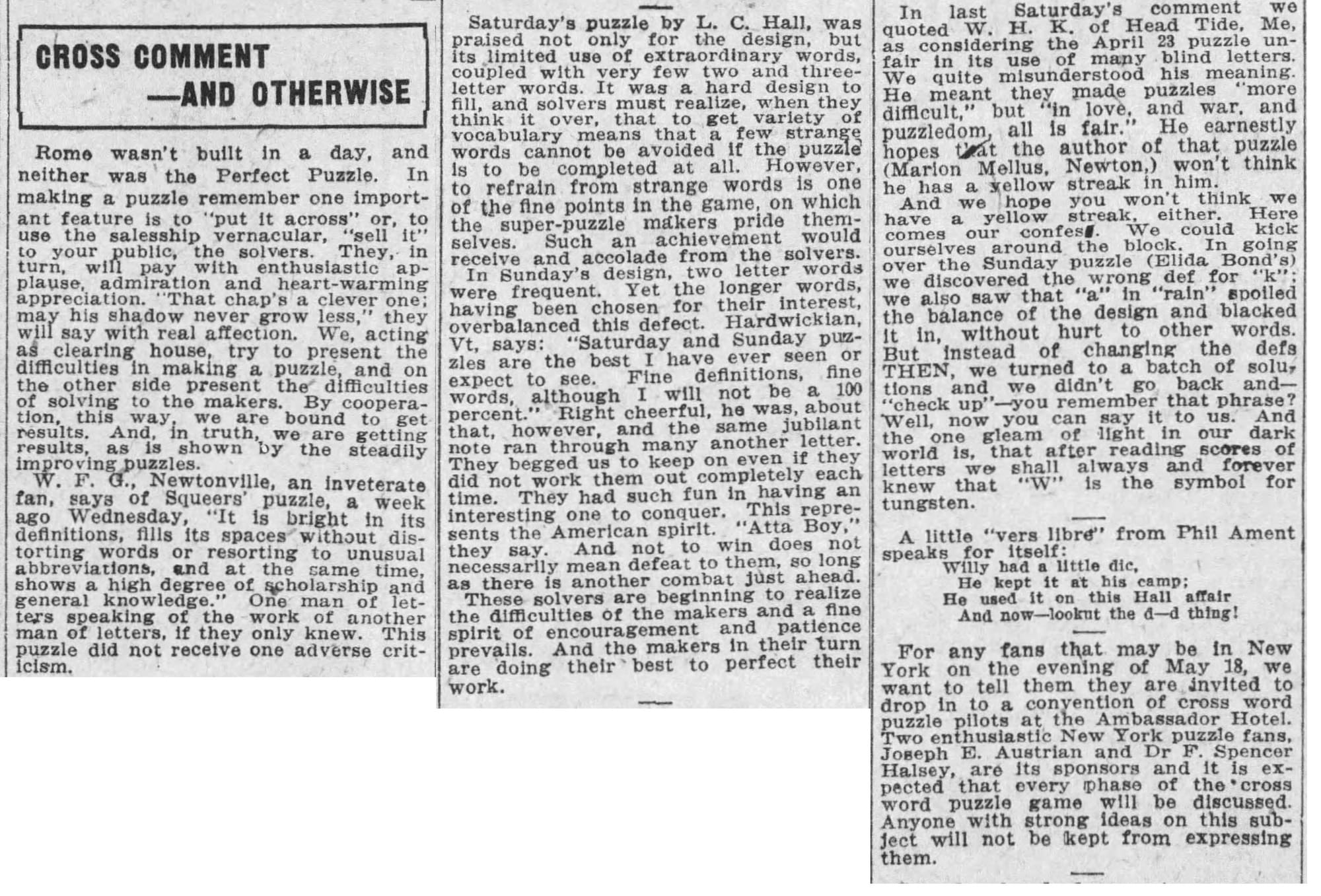
In this text, we see an early predecessor of both official outlets like the NYT Daily Wordplay column and the crossword blogs that have played such a major role in the modern crossworld.
To our modern sensibilities, the puzzles of 100 years ago would be considered quite a slog; reading a critical assessment at the time of their publication gives some insight into the hold they had on contemporary solvers.
In this case, the column synthesized feedback from readers (and even a second layer of responses to those responses!). Those early puzzles might be nearly unrecognizable to us, but the aversion to “strange words,” a desire for a “variety of vocabulary,” and a sense of the trade-off between “longer words, having been chosen for their interest” and some rough shorter fill all could come out of a 2024 conversation on Crosscord (the Discord server for crossword fans).
An excerpt, transcribed:
Saturday's puzzle by L. C. Hall, was praised not only for the design, but its limited use of extraordinary words, coupled with very few two and three-letter words. It was a hard design to fill, and solvers must realize, when they think it over, that to get variety of vocabulary means that a few strange words cannot be avoided if the puzzle is to be completed at all. However, to refrain from strange words is one of the fine points in the game, on which the super-puzzle makers pride themselves. Such an achievement would receive an[] accolade from the solvers.
[...]
These solvers are beginning to realize that the difficulties of the makers and a fine spirit of encouragement and patience prevails. And the makers in their turn are doing their best to perfect their work.
—
In last Saturday's commend we quotes W.H.K. of Head tide, Me, as considering the April 23 puzzle unfair in its use of many blind letters. We quite misunderstood his meaning. He meant they made puzzles “more difficult,” but “in love, and war, and puzzledom, all is fair.” He earnestly hopes that the author of that puzzle (Marion Mellus, Newton) won't think he has a yellow streak in him.
Finally, the Globe's column teased an upcoming event, about which we'll hear more in coming weeks.
For any fans that may be in New York on the evening of May 18, we want to tell them they are invited to drop in to a convention of cross word puzzle pilots at the Ambassador Hotel. Two enthusiastic New York puzzle fans, Joseph E. Austrian and Dr F. Spencer Halsey, are its sponsors and it is expected that every phase of the cross word puzzle game will be discussed. Anyone with strong ideas on the subject will not be kept from expressing them.
